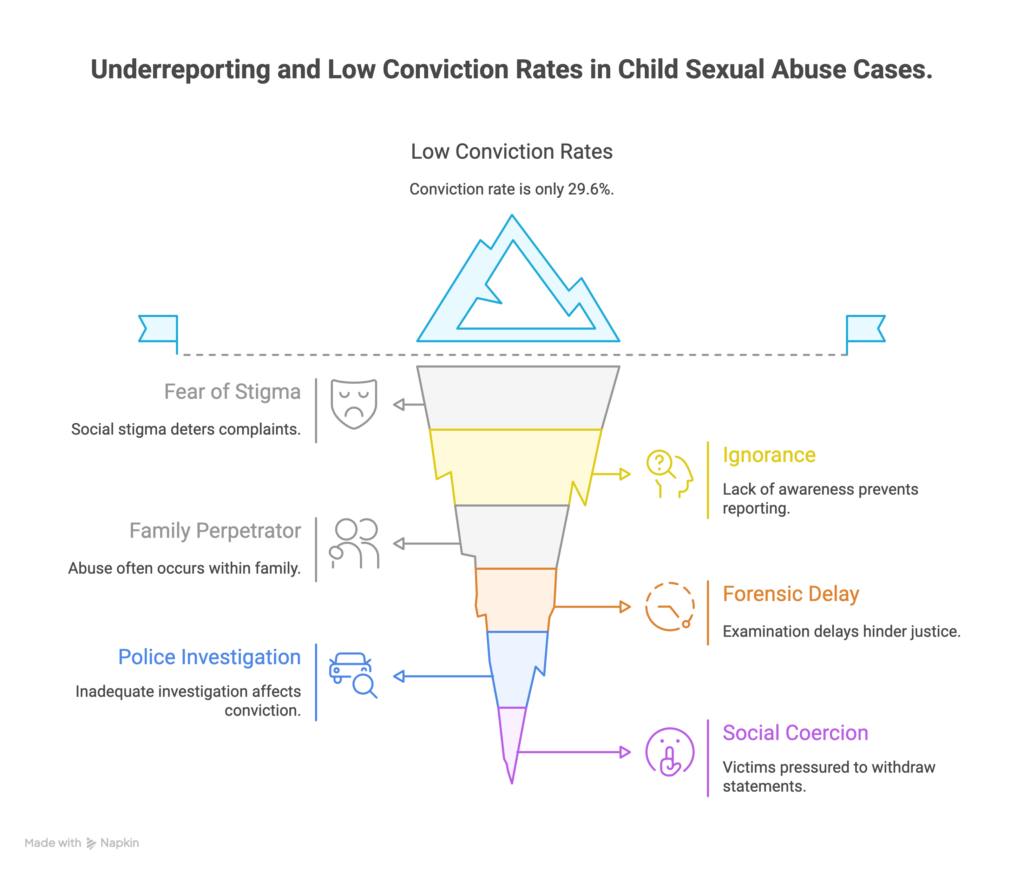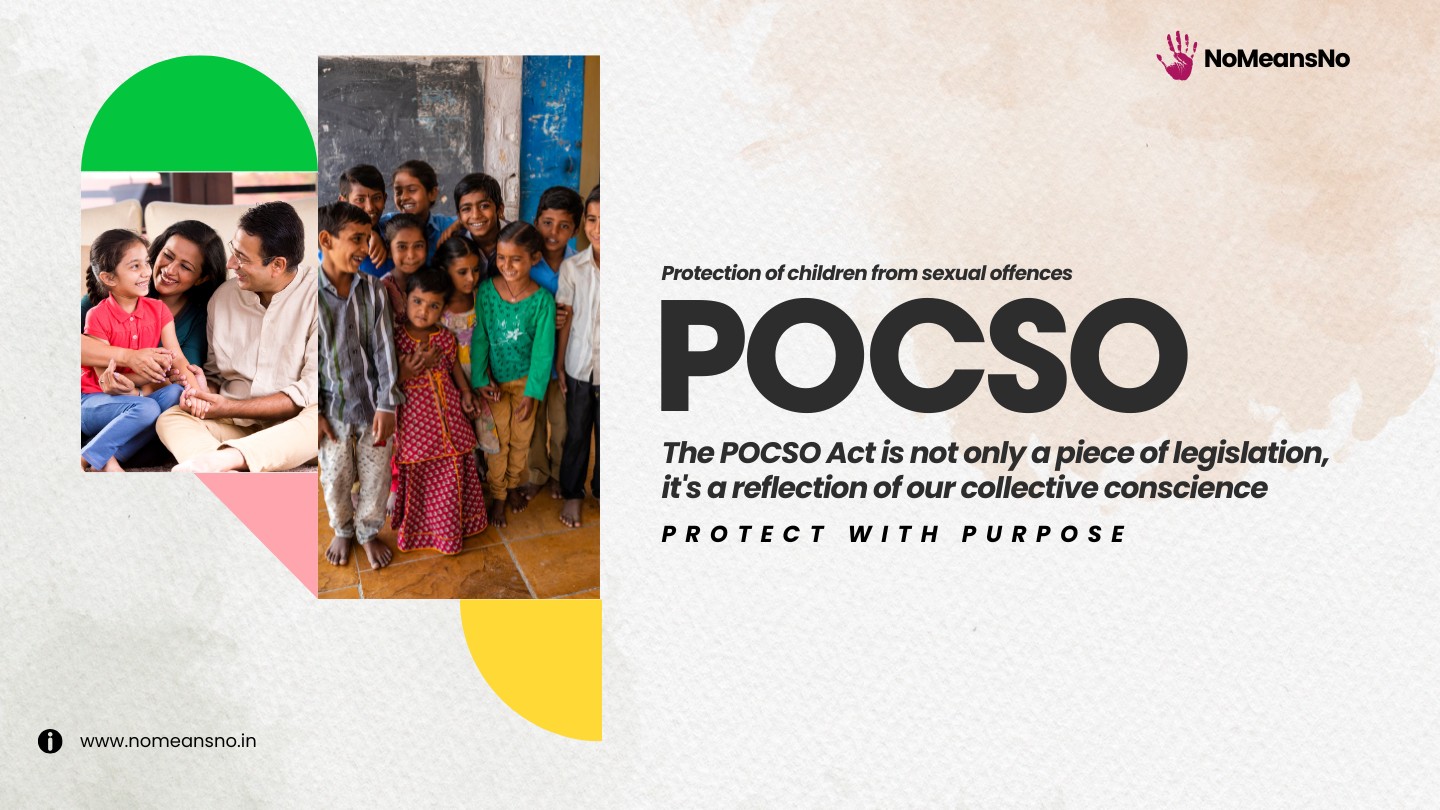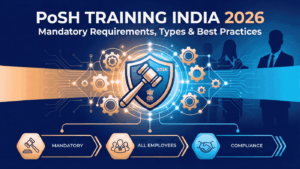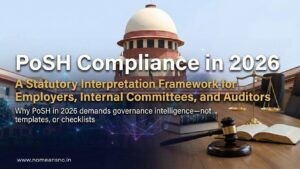Understanding POCSO Act in 2025!
In a globalized world where everyone is more conscious of child safetythan ever before, the Protection of Children from Sexual Offences (POCSO) Act, 2012, represents India’s irreversible solution to the compounded, multi-layered trauma of child sexual abuse. But more than a decade later, the importance of this piece of legislation does not reside only in its words, but also in the manner in which it’s construed, enforced, and absorbed by institutions and individuals.
We usually speak of the POCSO Act in relation to its strict provisions and gender-neutral definitions, but the depth of the law is only revealed when we go beyond definitions and pose: How has it changed the paradigm of consent, childhood, and justice?
Why POCSO Was a Game-Changer
Prior to 2012, there was no specific law in India that addressed sexual offences against children specifically. The Indian Penal Code (IPC) contained dispersed provisions but not a complete framework. The POCSO Act filled the gap by criminalizing a broad variety of acts, penetrative and non-penetrative violation, harassment, pornography, and importantly, making reporting compulsory.
But it didn’t end there with criminalization. The Act was child-sensitive, with special courts, expeditious trials, and a system of victim assistance that shielded the child from re-traumatization.
Between the Lines: How Courts Are Interpreting the Law
Whereas the black-and-white words of the law are compelling, the shades of grey fall in Indian courtrooms.
Consider the historic 2021 Supreme Court judgment in Attorney General for India v. Satish (Nagpur “skin-to-skin” case), where a Bombay High Court judgment acquitted a man under POCSO on grounds that there was no skin contact. The Supreme Court overturned the verdict, ruling forthrightly: “The most important ingredient is the sexual intent, not skin-to-skin contact.” This judgment reaffirmed that technicalities could never prevail over the intent of protecting children.
In another instance, the Delhi High Court held that even a false marriage promise to a minor might be included under the purview of POCSO if the minor was threatened into sexual intercourse. Again, the focus was on the vulnerability of the child and the exploitative employment of power disparity, rather than mere physical acts.
Where Reporting Fails the Child
Even with mandatory reporting, underreporting of child sexual abuse is a bleak reality. Fear of social stigma, ignorance, and in most instances, the perpetrator being a family member, deters complaints.
Even when cases are registered, POCSO convictions are low. The National Crime Records Bureau (NCRB) 2022 data showed that convictions in POCSO cases happened in a mere 29.6% of cases.
Forensic delay in examination, lack of thorough police investigation, and social coercion of victims to withdraw statements are responsible for this abysmal rate.
Let us not forget: Each failed conviction under POCSO is not merely a judicial failure it’s a child’s voice muffled.

When Systems Conflict: POCSO vs Child Liberty
One of the points of contention that has emerged is criminalization of consensual teenage relationships. Various High Courts have noted that teens in consensual relationships are being arrested under POCSO, both parties being close in age.
In Shubham v. State of Uttarakhand (2023), the High Court canceled POCSO charges against a 19-year-old boy in a consensual relationship with a 17-year-old girl, holding that “POCSO is not intended to criminalize young love.”
Training the Adults in the Room
The success of POCSO is as much about proactive policing as it is about delicate adult intervention. That’s where Train the Trainer programs, especially for teachers, child protection officers, NGO staff, and even corporate CSR teams, step in.
Training empowers stakeholders to:
- Identify signs of abuse that do not always appear
- Manage disclosures with empathy and legality
- Document and report concerns without breaching the child’s privacy and safety
These capacity-building initiatives overcome the law and real life disconnect. Legislation is only as effective as its last mile implementation, after all.
Digital Risks & POCSO
As kids are increasingly online, POCSO is now relevant in cyberspace. The 2019 amendment did formally identify child pornography (now referred to as Child Sexual Abuse Material or CSAM) as an offence, but the problems are numerous.
Dark web websites, end-to-end encrypted messaging, social media grooming, POCSO is unable to match the technological acuity of criminals. India does not yet have strong mechanisms in place to detect, trace, and prosecute cyber-based POCSO offenses in real time.
The answer is partnership, with tech firms, digital rights specialists, and cybersecurity experts, to develop a cyber-sensitive POCSO enforcement plan.
What Next?
As India celebrates more than a decade of the POCSO Act, the moment is apt to pose a question: Are we simply checking boxes for compliance, or are we actually building safer spaces for children?
What comes next is:
- Decriminalizing consensual teen relationships with thoughtful amendments
- Strengthening judicial and police infrastructure for expedited trials
- Investing in child psychology-based victim support services
- Including POCSO awareness in school and parent curriculum
- Utilizing AI and technology tools for digital monitoring and early warning
Understanding The POCSO Act in 2025 is not only a piece of legislation, it's a reflection of our collective conscience. It pushes adults, institutions, and systems to get beyond performative protection and into real, knowing, and proactive protection of every child's dignity. Because the ultimate triumph of POCSO will not be in higher convictions, but in lower crimes.
#NoMeansNo




